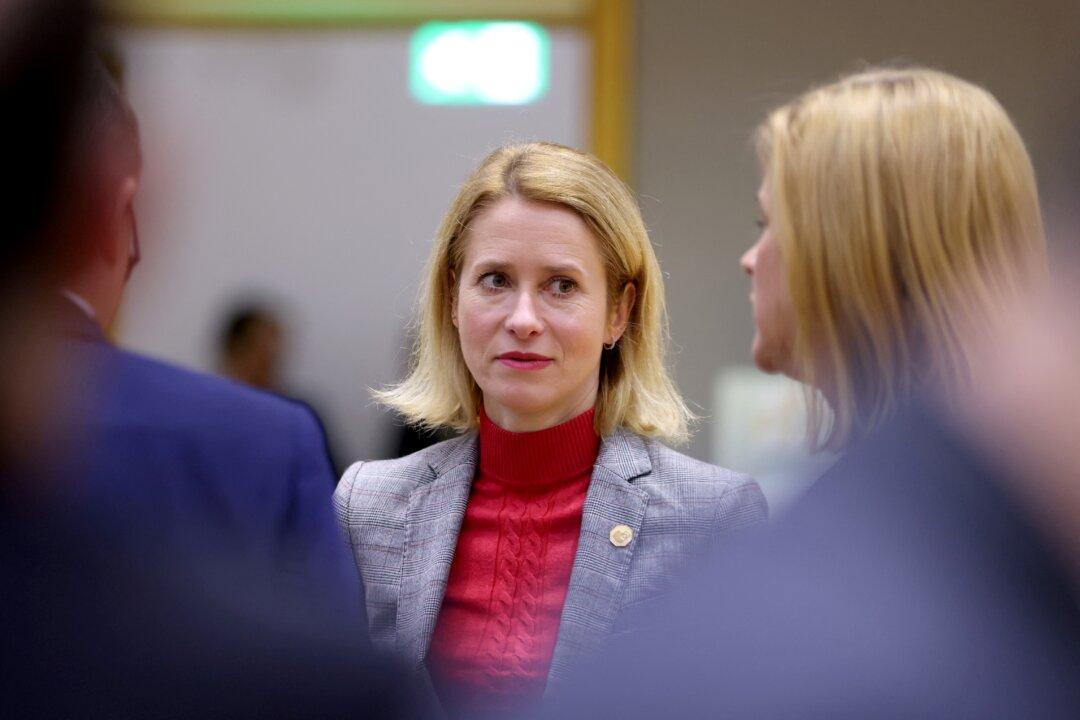MOSCOW/VILNIUS—Russian police have put Estonian Prime Minister Kaja Kallas, Lithuania’s culture minister, and members of the previous Latvian parliament on the wanted list, according to the Russian Interior Ministry’s database.
Kremlin spokesman Dmitry Peskov said Ms. Kallas was wanted for “desecration of historical memory.”





